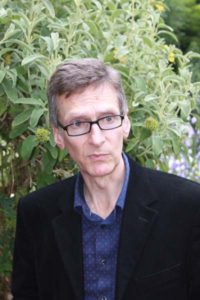20 July 2017
A Double-Edged Sword
En garde with anti-corruption laws.
By Neil Tidmarsh
 Last week, the central election commission of Russia barred the opposition activist Alexander Navalny from standing in next year’s presidential election because of his criminal record – he was convicted of fraud earlier this year. He and fellow opponents of President Putin have always maintained that the charges were fabricated, and the verdict was fixed, specifically in order to prevent him from standing against the president. Others around the world have been crying “foul!” this week as they too are cut down by what should be a civilised society’s most valuable weapon, insisting that they are innocent victims of a corrupt application of anti-corruption laws.
Last week, the central election commission of Russia barred the opposition activist Alexander Navalny from standing in next year’s presidential election because of his criminal record – he was convicted of fraud earlier this year. He and fellow opponents of President Putin have always maintained that the charges were fabricated, and the verdict was fixed, specifically in order to prevent him from standing against the president. Others around the world have been crying “foul!” this week as they too are cut down by what should be a civilised society’s most valuable weapon, insisting that they are innocent victims of a corrupt application of anti-corruption laws.
A senior Iranian diplomat, Hossein Fereydoun, has been arrested and detained in Tehran on suspicion of corruption. Mr Fereydoun is President Rouhani’s brother and one of his most valued advisors. He has been Iran’s ambassador to Malaysia and a member of the Iranian delegation to the UN, and was instrumental in securing last year’s deal with the West about Iran’s atomic weapons program. The president’s supporters claim that the arrest and detention are politically motivated, an attack on the president himself and an attempt to undermine his chances of becoming supreme leader after Ayatollah ali Khamenei. President Rouhani was re-elected two months ago, but the country’s hardline conservative judiciary and revolutionary guard still consider him a dangerous moderate and oppose the atomic deal he signed with the West. It seems that Mr Fereydoun has been interrogated by the revolutionary guard’s counter-intelligence department as well as questioned by the judiciary about his financial affairs.
In China, Sun Zhengcai, a member of the Chinese communist party Politburo and political chief of Chongqing city, has been detained by the Central Commission For Discipline Inspection (CCDI) during anti-corruption investigations. He had been tipped as a possible future president. His place as city leader has been taken by Chen Miner, a protégé of President Xi, who is almost certain to take Mr Sun’s place in the politburo as well, as the two positions usually go together. Critics have accused the president of using corruption allegations to remove potential rivals before, and some are suggesting that Mr Sun’s removal is a prelude to a re-shuffle of the party’s 25-member politburo and its seven-member standing committee prior to the Chinese communist party’s 19th congress this autumn.
In Brazil, the former president Luiz Inacio Lula da Silva was found guilty of corruption and sentenced to nine and a half years in prison. The charge involved receiving benefits from the construction company OAS in return for political favours. It was only one of five charges against him; he still faces four more trials. Nevertheless he and supporters of his left-wing Workers’ Party claim that he is innocent and that the charges are politically motivated. He is appealing against the verdict, and insists that he will stand as a candidate in next year’s presidential elections. He will indeed be allowed to stand if the appeal is successful, or even if the election simply comes before the appeal court’s decision. And he may well win a third term as president, according to polls (though the country would have an interesting constitutional dilemma on its hands if he won the election and then the appeal court upheld his conviction).
He might be the front-runner for the presidential elections, but, for once, this cry of “Foul!” remains unconvincing. The charges against him are part of “Operation Car Wash”, the anti-corruption investigation which has left Brazilian politics and business reeling over the last few years. The operation is being undertaken by a ferociously independent judiciary. It has impartially pursued politicians and businessmen, irrespective of their power, wealth, influence or political orientation. It is currently hauling Mr Lula da Silva’s political opponent and presidential rival off towards the Supreme Court; the current president Michel Temer himself was charged last month with accepting bribes from the world’s biggest meat-packing business. And one of the country’s most prominent businessmen, Marcello Oderbrecht, the former head of the Oderbrecht construction group, is currently serving a 19 year jail sentence for corruption and money laundering. With Mr Lula da Silva’s opponents in the same boat, it’s difficult to see who might be setting him up or why anyone might be trying to do so.
Last week, Operation Car Wash was itself crying “Foul!”. The Federal Police announced that it is shutting the operation down. It is assimilating the unit into its main anti-corruption division “for reasons of efficiency”. Prosecutors and police officers, protesting against the move, pointed out that President Michel Temer (see above) appointed a close associate to run the Justice Ministry only a month or two ago – and the Justice Ministry oversees the Federal Police.
The president’s spokesman has denied any presidential influence in the matter.
If you enjoyed this article please share it using the buttons above.
Please click here if you would like a weekly email on publication of the ShawSheet

